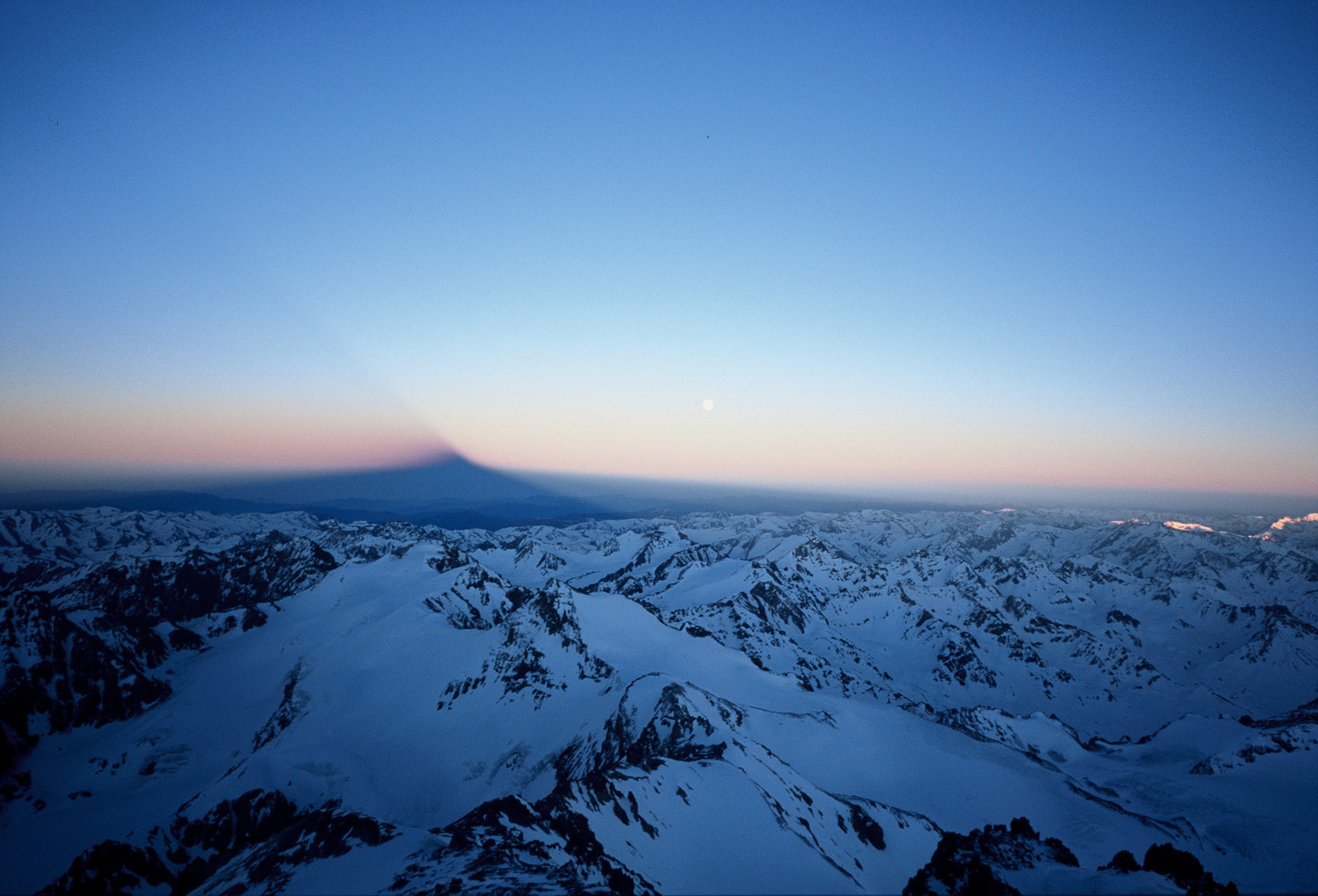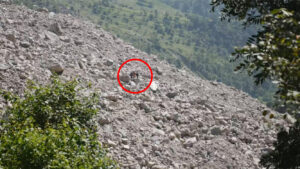It was a sad day when I, as a kid, learned that my parents and I weren’t going to live forever, and later that, eventually, even the Universe would die. All our creations, memories, and remnants will one day cease to exist. The evanescence of life. So, what is the point if we are all going to die in the end? In this article, Sweden’s foremost high-altitude climber Fredrik Sträng and renowned public speaker, problematizes the impact of impermanence and how you can use it to value the limited time that you walk on earth better.
“To exist in this vast universe for a speck of time is the great gift of life. Our tiny sliver of time is our gift of life. It is our only life. The universe will go on, indifferent to our brief existence, but while we are here, we touch not just part of that vastness, but also the lives around us. Life is the gift each of us has been given. Each life is our own and no one else’s. It is precious beyond all counting. It is the greatest value we can have. Cherish it for what it truly is….. Your life is yours alone. Rise up and live it.” ― Terry Goodkind
Dukkha
It happens every now and then that I become the subject of people’s admiration and envy, relating to my adventurous proclivity and choice of freedom. The commentators are successful people with respectable jobs, having a mannerly family, and being able to afford pretty much everything they point their fingers at. Despite all their affluence, they are still on the hunt for something that I have in abundance – time. I have dedicated my life to the pursuit of physical strength and endurance, becoming an athlete who can roam freely in the mountains, and I have the luxury to devote time to what matters most to me. This concept is particularly attractive to people who are over 50 years old and pondering their life choices. ‘If I could start over, I would have chosen your path, Fredrik,’ they remorsefully admit, trusting that I won’t disclose their names. After all, regretting having kids is a sensitive topic. Yet, I sometimes fall into the same, but reversed, pit. What would my life have become if, instead of vanquishing lofty peaks in the Himalayas, had I finished my civil engineering program at the Royal Institute of Technology?
In Buddhism, we call it ‘Dukkha’—you’ll get what you don’t want, and what you want, you don’t get. This feeling of inadequacy, like a constant itch, is what I call a time-destroyer, and believe me when I say, it saps your energy and your precious time on earth. If you feel that 80-90 years walking on this earth is way too little time, then wasting it is the last thing you want to do.
Now, let’s delve into some staggering numbers of astronomical proportions to emphasize the profound “meaninglessness” of it all:
A grain of sand
The amount of sand grains on every beach, every desert, on the entire planet would not come close to the number of stars there is in the observable universe.
7.5 x 1018 grains of sand
If you took 10 drops of water and counted the number of H2O molecules in those drops, you’d get a number equal to all the stars in the universe.
1024 stars
If you count every single atom in the universe,
between 1078 and 1080 atoms
you will not come close to the age of universe is estimated to last.
10100 years
In the physical world, beyond the belief of the afterlife, heaven and hell and the spirit world, all that we have sown, all that we have nurtured, all the gifts we have given, all the love we have received and all those we have held dear will one day disappear. The arrow of time will stop moving forward because when nothing is left, nothing can change, and it will remain unchanged for all eternity.
Just as the iron composing the hull of the expedition vessel “Searcher”, which carried us through the icy waters of Antarctica in 2003, will one day succumb to rust and be scattered by the relentless winds, so too do scientists speculate that the substance contained within black dwarfs—the final remnants of matter in the universe—will eventually dissipate, transforming into ethereal radiation drifting aimlessly into the vast void.
When the black dwarfs fade into oblivion, not a single atom will linger within the cosmos. What remains of our once vibrant planet and the enigmatic universe that enveloped it will be naught but particles of light and enigmatic voids. Eventually, even the formidable black holes will dissipate, leaving behind only a silent sea of photons gradually cooling to the temperature of the ever-expanding universe, approaching the icy embrace of absolute zero.
As the last vestiges of stellar remnants fade into nothingness and all entities reach equilibrium, the narrative of the cosmos reaches its final chapter. For the first time, the universe exists in a state of eternal stasis, unchanging and eternal. Entropy ceases its relentless ascent, unable to further disorder the universe. In this timeless expanse, nothing occurs, and nothing will ever occur again. This phenomenon, known to science as the heat death of the universe, heralds an era of infinite vastness and cold desolation, where time itself ceases to flow. Past, present, and future blend into a seamless continuum, for there exists no measure of time in a cosmos devoid of change. The arrow of time, once a guiding force, fades into obscurity, leaving behind only the stillness of eternal oblivion.
Does life’s fleeting existence amount to mere insignificance if everything is destined to vanish in the end? Are we the solitary ponderers of this existential quandary as we gaze upon the celestial expanse on a tranquil, starlit night, contemplating the roughly five thousand visible stars? Are we, in the vastness of the cosmos, but transient beings blessed with the ability to contemplate our own finitude?
What’s the point of it all if everything will seize to exist?
Some perhaps maintain that these deep-rooted philosophical questions are for people who have too much spare time and should get a real job. Notwithstanding, when was the last time you took a deep breath and gazed into the bewildering night sky contemplating about the mindboggling wasteness of space until you got a brain freeze? Or when was the last time you were completely absorbed in an activity so pure of ecstasy that the arrow of time simply seized to exist? Maybe it was when you were sailing in the archipelago, perhaps when you become a grandfather, perhaps when you saw a movie that moved you to tears, or when you were jogging through a meadow covered with thousands of white innocent windflowers?
These are effective ways of “pausing” time, becoming intrinsically absorbed in the here and now, but the overly sophisticated is already preparing for the future or mourning the inevitable end of these blissful moments instead of living in the present. I’ve found two wise maxims that clears up the fear of missing out, and the fear of insignificance:
- “Yesterday is history, tomorrow is a mystery and today is present – that is why we call it a gift.” Living in the now evaporates the fear of insufficiency and missing out. Meditation can be an effective agent to accomplish such miracles. The challenge is to transcend the peace of mind into the rest of the day and not only when you are sitting on your meditation pillow nose-breathing.
- “Contemplating about that I eventually will die is the greatest impetus to make the best of every moment I have. Living life as if every day would be the last.” It’s ironic how the concept of death itself can be the driver to live life to the fullest. Incorporating “if this was the last day of my life” – mentality into everyday decisions certainly would make you prioritize differently and less inclined to be offended. It is simply not worth wasting your time on bitterness, stress, or anger.
This is the thing: Because everything is impermanent, time becomes unimaginably precious. Imagine if everything lasted forever; then surely, we would become careless with our time. However, a stage four cancer patient, whose days are numbered, appreciates life in every breath. Perhaps we must blame our self-contemplating brains, which, unlike animals, can envision the future. Everyone fears death at some stage in their life until, eventually, we make peace with this fact. Secularists know they are mere mortals and will someday lose it all. I will not be tempted to delve into the path of religious belief in this article, that death is just the beginning. In this article, I presume that after death, there is nothingness, not even blackness. I honestly do not see a discrepancy in believing in the afterlife and the nothingness after death. Both beliefs encourage us to make our time count and use it wisely. It’s like walking painlessly for days after a plane crash in a scorching hot desert without water. All you can think of is water.
Because, in astronomical terms, existence is impermanent, it becomes meaningful. We are but a blink of an eye in the vast cosmic arena, so make the best of your days, because they will not return.
About Fredrik Sträng: Fredrik, in his leadership role, has climbed seven of the Earth’s fourteen 8,000m peaks, set a Guinness World Record, and lectures on leadership, communication, decision-making, and crisis management.
Best regards, Fredrik Sträng Alpinist – Speaker – Coach







